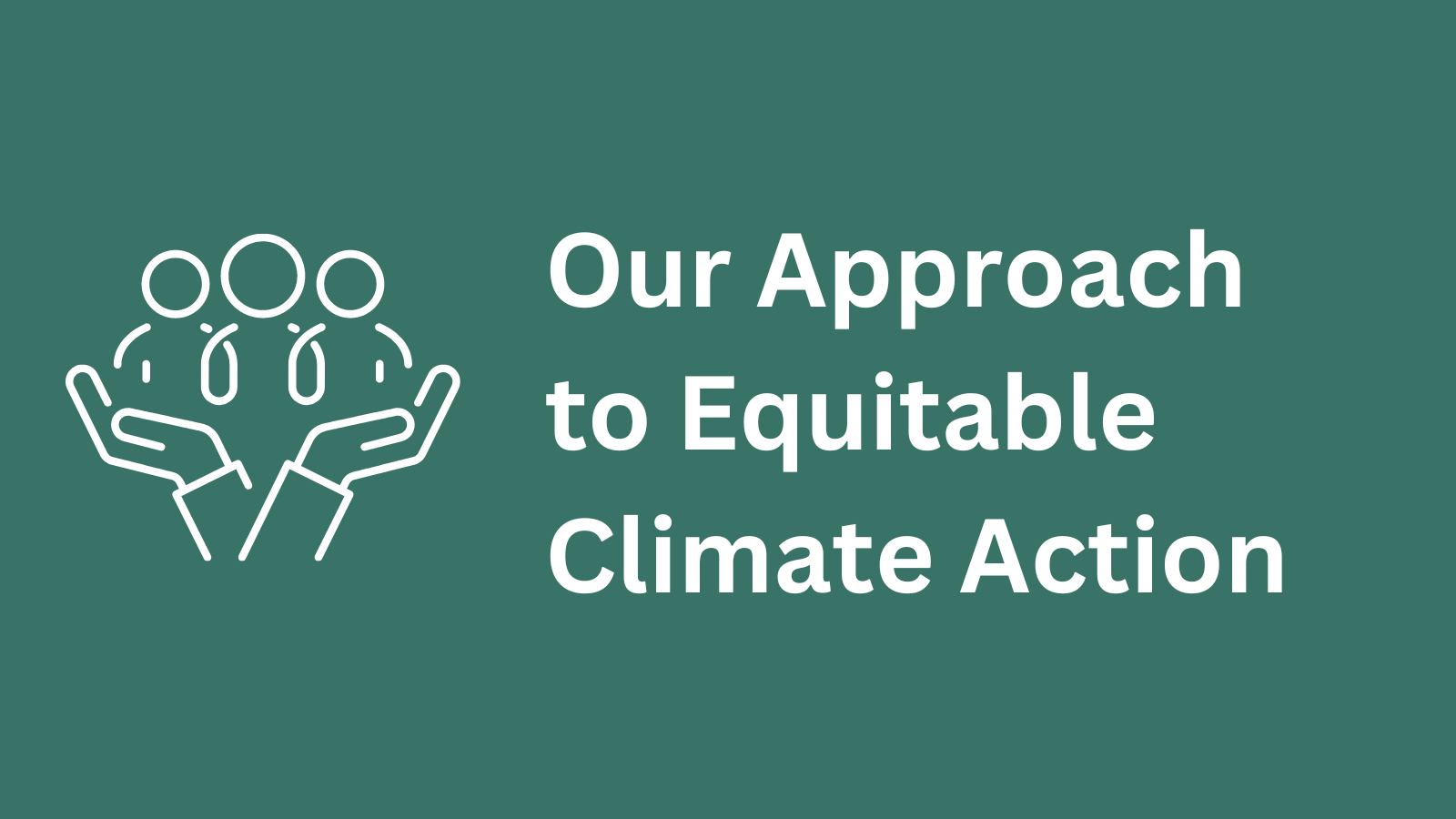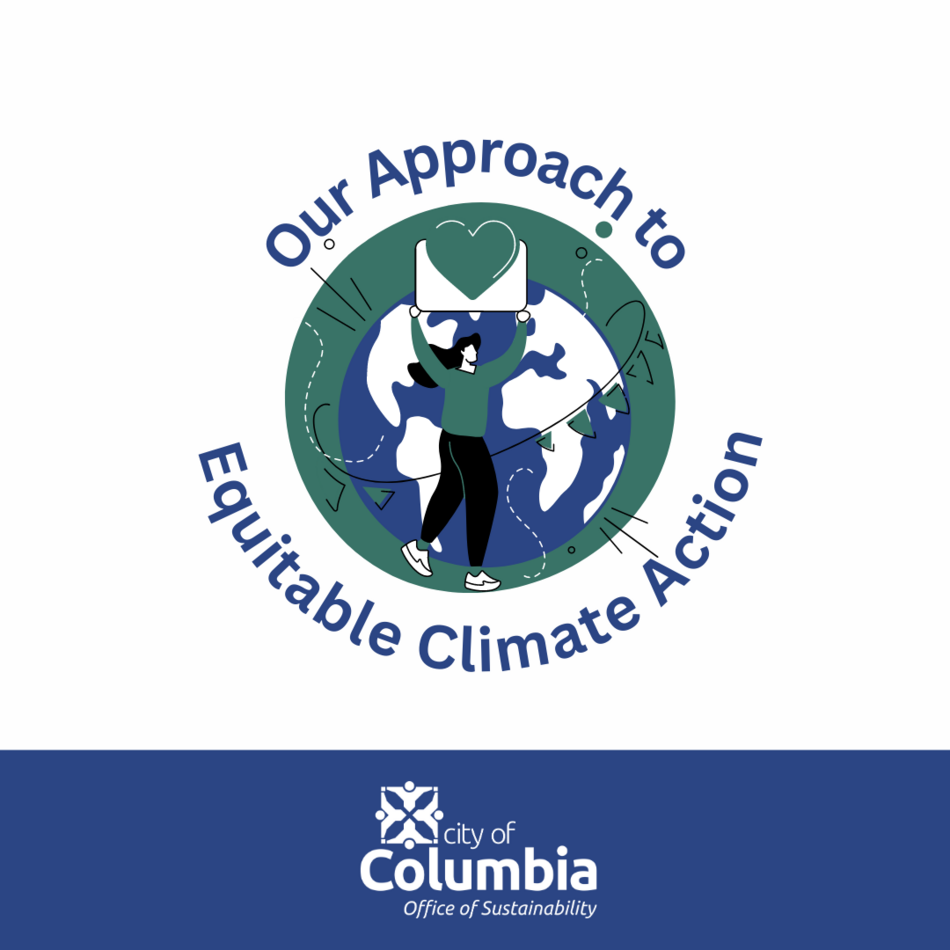In cities across the county, including Columbia, historic and current systems, policies, and behaviors create inequities in our communities. These burdens, often rooted in racism and discrimination, can be social, mental, physical, economic, and emotional. As a result, some members of our community – including low-income families and people of color – are disproportionately impacted by challenges such as climate change.
Like economic recessions or natural disasters, climate change does not affect everyone in the same ways. Climate hazards like extreme heat, storms, and droughts disproportionately harm communities that have been historically under resourced and marginalized. Indirect impacts from climate change, such as economic disruptions, heat-related illness, and worsening air quality, can also play a role in widening disparities in our community.
As our city takes action to address climate change, we have an opportunity to do so in a way that brings about positive change for everyone in our community. The City of Columbia is taking steps to ensure all policies, procedures, and projects are created and implemented with a focus on equity.

Our method moving forward is Targeted Universalism, which is a different way to make the transformational changes we need. Targeted Universalism rejects the idea of implementing blanket policies that may not consider or recognize the reality that different groups in our community have access to different resources, opportunities, and structures of power.
In terms of implementing the CAAP, the City is considering equity and practicing Targeted Universalism by:
- Designing policies and programs that serve disadvantaged communities first.
- Focusing policies and programs on communities experiencing high pollution burdens, poverty, health issues, and exposure to climate hazards.
- Proactively engaging community leaders and members on an ongoing basis.
- Using an equity checklist when implementing actions
While it may seem that some climate actions are far removed from social justice issues, there are many ways the actions we implement will help create a safer, healthier, and more fair community – for all. For example, making our homes more energy and water efficient allows utility bills to be more affordable, enhancing our local food systems shrinks food deserts, and expanding the tree canopy in neighborhoods with fewer trees allows those areas to be cooler which improves health outcomes and increases property values. Several projects currently underway highlight the connection between climate action and social justice.
Show Me the Heat
Heat does not impact our community evenly. Seniors, unhoused community members, children, and folks working outdoors are especially vulnerable to the dangers of extreme heat. Rising power bills (necessary for keeping our buildings cool) will also burden low-income community members as temperatures rise. Additionally, we know that neighborhoods with more people of color are often hotter than White neighborhoods, due to historical redlining and other unjust policies (Data Driven Lab). Understanding the distribution of heat across Columbia will help the City and our partners provide services such as cooling centers, utility bill assistance, air conditioning giveaways, medical and social services, and green infrastructure to the people that need it most.
Columbia’s heat mapping campaign, Show Me The Heat, was a major success!
Thirty-six volunteers attached sensors to their vehicles and drove six predetermined routes collecting relative humidity, ground temperature, and location data every second, culminating in over 30,000 different data points! CAPA Strategies analyzed the data to create heat maps that show which areas are warmer and cooler throughout Columbia. Next steps for Show Me The Heat initiative include convening neighborhood meetings to build awareness around urban heat and problem-solving together on reducing the impacts of urban heat on our community.
Stay tuned on the results, get local heat resources like AC and fan rebates, sign up for our email list, or join an upcoming neighborhood meeting!
Rental Housing Energy Efficiency
The City of Columbia is committed to improving the energy efficiency of rental housing properties. We are looking for feedback from renters, rental property owners/managers, and other stakeholders to help identify the benefits and costs of improving energy efficiency in rental housing.
Visit BeHeard.CoMo.gov for a link to a questionnaire and to learn more.
One way to make sure that City plans and projects are developed and implemented with equity and social justice front and center is by getting everyone involved. Find ways you can be engaged with City planning initiatives and spread the word to others!
Sign up for our newsletter to stay in the loop.
Previous Post
Sustainable Transportation in CoMo
Next Post
Fall In LOVE with These 4 City Sustainability Programs




